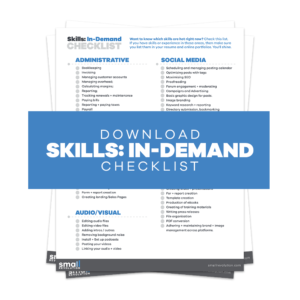Job searching can be a daunting and gut-wrenching task. You have spent hours working on your application only for it to be rejected. You have attended interviews only to never hear from the interviewers. Worse yet, you’ve received that email of regret.
Do all these scenarios sound familiar?
There could be a few things you are doing wrong throughout the application process. This article outlines three tips that will help you land your dream job.
3 Tips to Help You Land Your Dream Job
1. Problem: No interview invite
You are submitting only a few applications. You increase your odds of getting hired with every application you submit. A UK survey found that job seekers had to send, on average, 27 applications to get one interview.
You can create a simple spreadsheet to keep a track of your applications and the progress you’re making.
You’re sending generic resumes and cover letters. According to Glassdoor for Employers, every corporate job attracts 250 resumes, but only four to six applicants will be called back for an interview and only one will be hired.
To make your resume stand out and land that dream job, you need to customize your resume, cover letter, and submission email.
More and more companies are using resume scanners in the recruitment process. To move past this stage, read through the job description and customize your resume to fit the keywords found in the job description.
Moreover, highlight your work experience and skills to match the requirements.
In addition, select one or two things that stand out about the company and job in order to tailor your cover letter to highlight your skills that fit the role.
You have a gap in your employment history. Unemployment gaps are quite common. For instance, you may have taken a break to look after a sick family member, you may have been hospitalized or you simply needed a break.
Long unemployment gaps often raise a myriad of questions and assumptions in the mind of the interviewer.
It is best to get ahead of these assumptions and explain the unemployment gaps. You may choose to include it in your cover letter, resume or submit a note with the explanation.
2. Problem: No callback
You have secured the first interview but you have yet to receive a phone call. Here’s what you could do in the meantime.
Conduct extensive research into the company. Good interviewees use the internet to glean information about the company and the role. This could be anything from the company’s mission and vision, the founders, their core business, their accomplishments, etc.
The company’s website, social media pages, and news articles are some great avenues to get such information.
Once you have this information, it becomes easier to answer commonly asked interview questions such as ‘what do you know about us?’ or ‘why do you want to work here?’
Learn how to articulate your employment history. Most recruiters will often ask you to explain your employment history. They want to hear things that can’t be found on your resume. The expectation is that you will go into detail.
If you were fired, mention this but don’t blame your former colleagues or employer. Be accountable. If you resigned, explain this.
How are you selling yourself? Think of yourself as a brand. You are hoping the employer will hire you based on how you sell yourself. Don’t be ashamed to highlight your impressive accomplishments. Be clear and specific.
Include numbers, stories, and examples that showcase these accomplishments. Mention that team you led that won an award. Detail the processes you implemented.
Employers are always looking for individuals who display leadership qualities. Be sure to include scenarios in which you were in a leadership position.
3. Problem: No job offers after multiple interviews
You have successfully sat through a couple of interviews, yet you’re still receiving rejection emails. Read on to discover what you need to improve.
Do you have the right references? References play a big role in whether you get hired.
Always pick managers and peers who will speak glowingly about you, your skills and your achievements. You want people who will enthusiastically answer all questions and reassure the interviewer they are hiring the right person for the job.
Always communicate with your references that you are adding them to your reference list. This way, they are prepared and aren’t blindsided by a phone call. Furthermore, ensure that the details you offer are accurate and up to date.
It is recommended that you only offer references when asked for them. This gives you enough time to alert your references and have them prepare for the phone call or email.
Customize your responses. If you conducted extensive research into the company, you will be in a good position to answer the interview questions.
Read the job description, requirements and responsibilities carefully. Your answers should highlight the skills, experience, knowledge, and background that are the best fit for the company and role.
Prepare well-thought-out questions. Not asking questions or asking the wrong questions shows you are neither prepared nor interested in the job. Most interviewees don’t ask the right questions while some think that is the time to continue pitching themselves.
Instead, this is an opportunity to get more information about the job, the manager and the company. Check out this curated list of 105 questions that will get you insights about the job.
Compensation. As you research the company, look up their salary scales and compensation packages. You may find you are under- or over-quoting the compensation package.
Resources such as Glassdoor list salaries for different companies. You can use this information to estimate the compensation value that you’ll quote.
What Happens When They Pick Someone Else?
It is possible you did everything right but someone else stood out and the company ended up hiring them instead. The good news is that if you made it through multiple interviews, you did almost everything correctly and you’re very close to getting hired!
These tips will help you figure out what you are doing wrong in the job application and interview process. They will also help you improve your chances of landing your dream job.
If you have upcoming interviews, you can check out this interview cheat sheet that offers a step-by-step guide for securing job offers.
Photo by Unsplash


